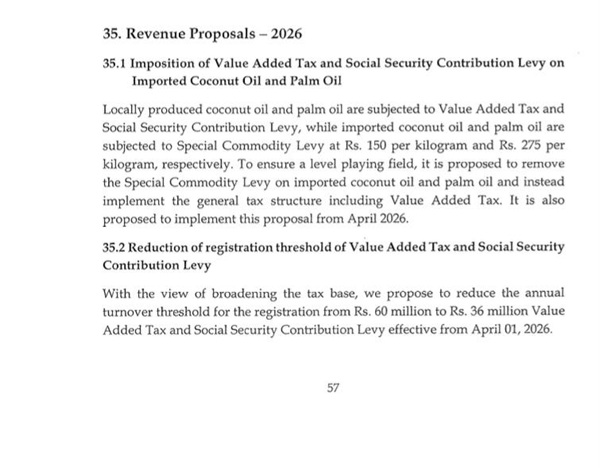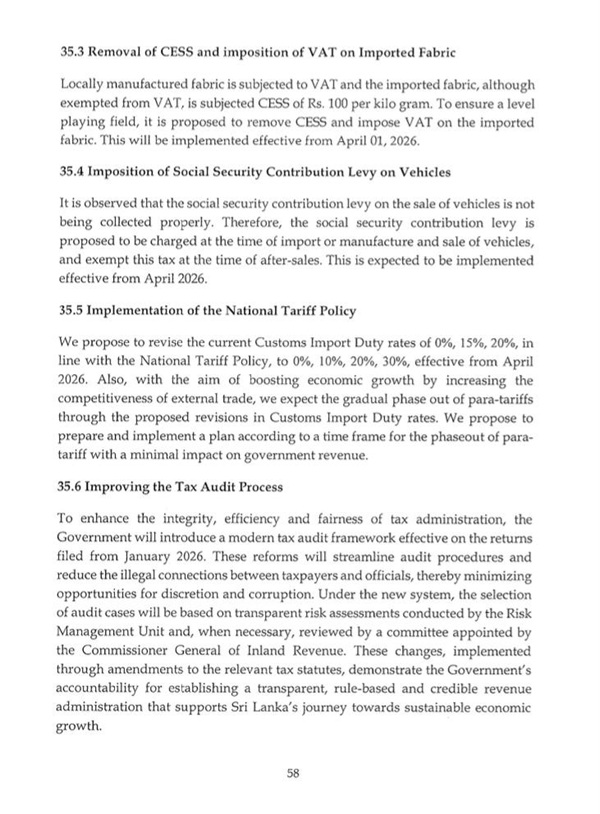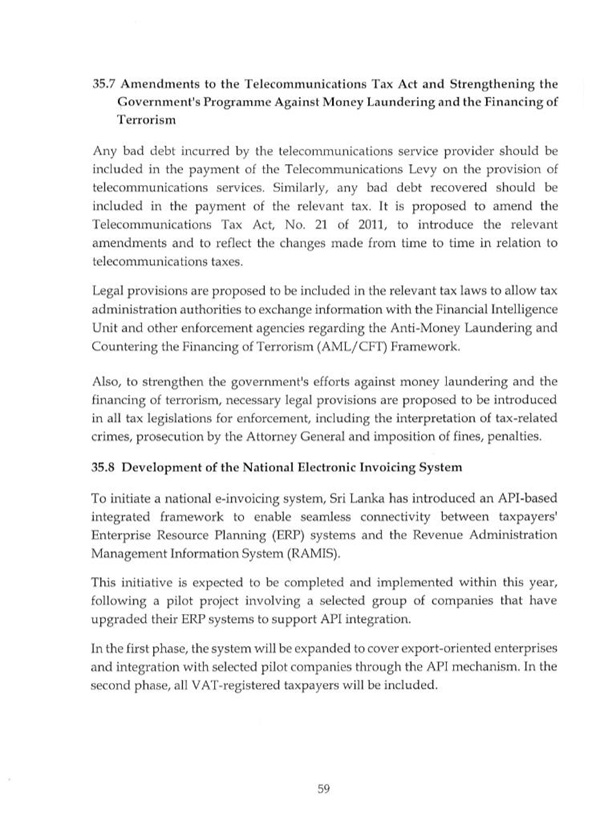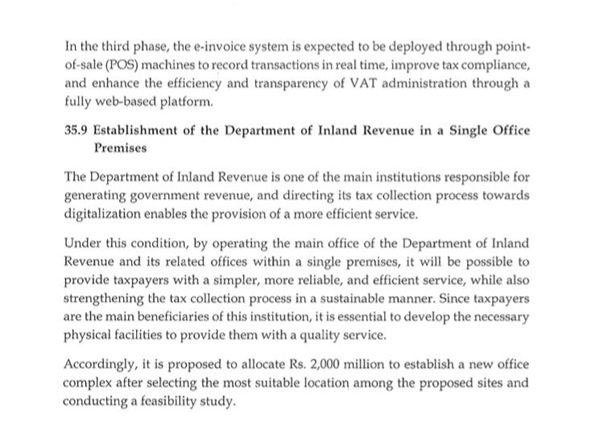
The government has made 09 key revenue proposals in the Appropriation Bill for the 2026 financial year.
Addressing the Parliament today, President Anura Kumara Dissanayake outlined the following revenue proposals;
- Imposition of Value Added Tax (VAT) and Social Security Contribution Levy on imported coconut oil and palm oil;
It has been proposed to remove the Special Commodity Levy on imported coconut oil and palm oil, and instead implement the general tax structure, including Value Added Tax (VAT), Effective from April 2026.
- Reduction of the registration threshold of Value Added Tax and Social Security Contribution Levy:
The government has proposed to reduce the annual turnover threshold for registration from Rs. 60 million to Rs. 36 million Value Added Tax (VAT) and Social Security Contribution Levy, effective from 01 April 2026.
- Removal of CESS and imposition of VAT on imported fabric:
It has been proposed to remove the CESS of Rs. 100 per kg and impose VAT on imported fabric, effective from 01 April 2026.
- Imposition of Social Security Contribution Levy on vehicles:
The government has proposed charging the Social Security Contribution Levy at the time of import, manufacture, and sale of vehicles and exempting the tax at the time of after-sales, effective from April 2026.
- Implementation of the National Tariff Policy:
It has been proposed to revise Customs Import Duty rates to 0%, 10%, 20%, and 30% under the National Tariff Policy, with a phased plan to gradually eliminate para-tariffs while minimizing revenue loss.
- Improving the Tax Audit Process
The government will introduce a modern tax audit framework effective on the returns filed from January 2026. These reforms will streamline audit procedures and reduce the illegal connections between the taxpayers and officials.
- Amendments to the Telecommunications Tax Act
It has been proposed in the Budget 2026 to amend the Telecommunications Tax Act to reflect the changes made from time to time in relation to telecommunication taxes, such as the inclusion of bad debt incurred by a service provider.
- Development of the National Electronic Invoicing System
Introduce the API-based integrated framework to enable seamless connectivity between the Taxpayers’ Enterprise Resource Planning (ERP) and the Revenue Administration Management System (RAMS), following a pilot project within this year.
- Establishment of the Department of Inland Revenue in a single office premises:
It has been proposed to allocate Rs. 2000 million to establish a new office complex after selecting a suitable location and conducting a feasibility study. (Newswire)




